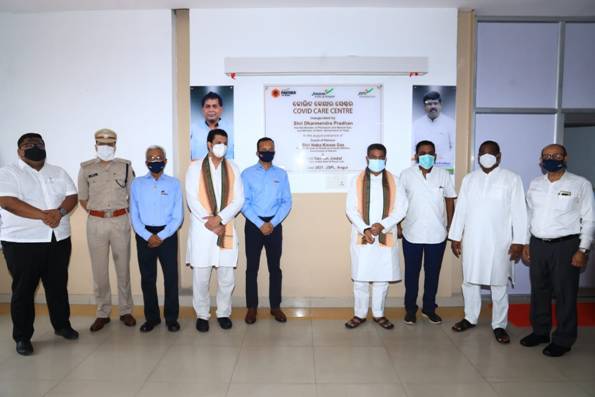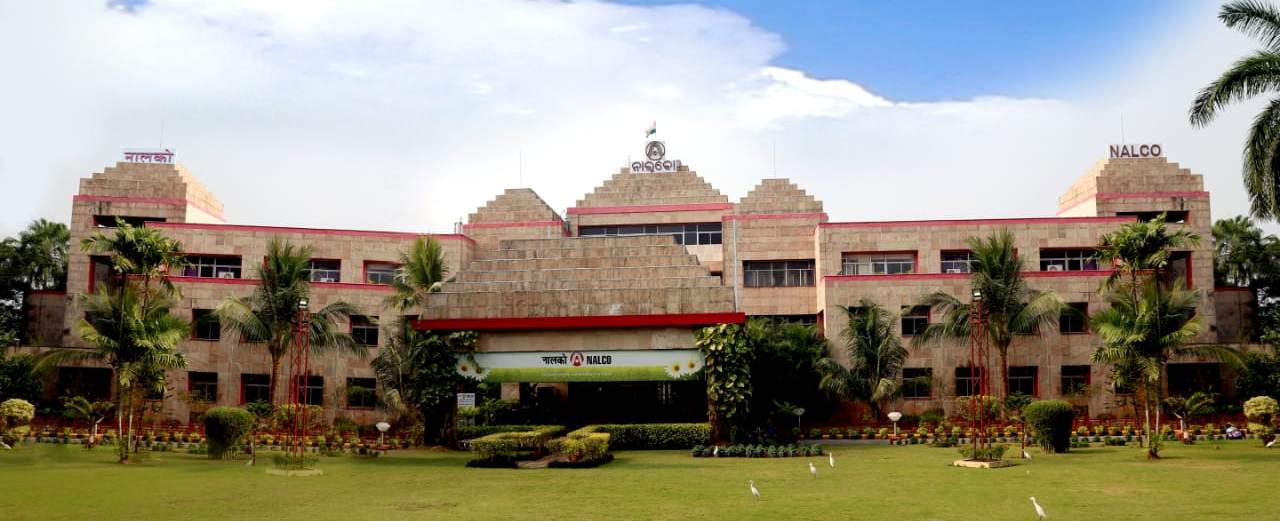Interesting aspect of CSR spending by PSUs has been diversion of over 45% of funds to Prime Minister’s Relief Fund and state Chief Ministers’ relief funds ! The reporting system has deprived such funds being made available for local development in most backward areas where the majority of PSU’s are located. The maximum benefit of CSR spending has gone essentially to the industrially advanced and comparatively developed regions of the country. The poorer states, including Odisha, accounted for only 15% of total CSR spending and have languished at the bottom of the table in terms of number of projects undertaken during 2015-16.
Back ground:
Corporate social responsibility rests on the theory of Trusteeship. Since a Company utilizes the resources offered by nature and the society for its benefit; the former should act as a trustee ensuring the welfare of the latter. And that the actions of a Company remain more than just its shareholders.
The concept of corporate social responsibility (CSR) in India is primarily based on two theories – the Gandhian trusteeship theory and the stakeholders’ interest theory. While the former propounds that since a company utilizes the resources offered by nature and society for its benefit it would act as a trustee towards ensuring the welfare of nature and society, the latter is founded on the principle that the actions of a company affect more than just its shareholders – thus the general public holds an equal ‘stake’ in the company.
United Nations Industrial Development Organization (UNIDO), describes CSR as being the way through which a company achieves a balance of economic, environmental and social imperatives (Triple-Bottom-Line Approach), while at the same time addressing the expectations of shareholders and stakeholders.
Indian Scenario – Prior to 1st April, 2014
Corporate Social Responsibility is not a new concept in India. Since the commencement of industrialization process in India in the mid 19th century, business houses maintained their engagement with the society at their places of operation through charitable acts and donations to social causes. In general, the guiding principles were decided and dictated by the owners of the businesses and reflected their personal priorities and preferences. More often than not the charitable acts were guided by religious belief. Building of temples, mosques and other worship institutions, which also doubled as cultural activity centers of the society, was a priority even for the rulers and businessmen of the day. This was followed by building and managing of orphanages, destitute homes, ‘dharmshalas’ and facilities for pilgrims. Taking care of public health and education came in as the next level of priority which was mostly adopted after independence. Still, whatever the business organizations did – was as per their choice and will.
Later on, when the society became more aware of the balance between what the business houses took from the environment as well as the eco system and what they gave back, the demands of the society started getting more specific. Most industries and business houses were left with little choice but to spend a part of their earnings, at times, as a price for buying social peace and at other times to establish their image of responsible corporate citizenship before the government and political system of the day. Though not always true across the table, except for Public Sector Organizations and a few more major private sector organizations – where the founding features were guided by a distinct philanthropic ideology, a majority of the business set ups kept away from incorporating the triple bottom line approach in their governance system.
Changes in article 135 of Companies act and CSR regulatory implementation:
The Ministry of Corporate Affairs (MoCA), Government of India had been working since mid-2000s on bringing out an act which would make businesses in India think and act in a more responsive and responsible manner to social needs. In the face of sever public resistance against the prospective industries on non-government land and allowing industries to share natural resources of those locations, it became important for the government to ensure that society too looked at industries differently as a necessity for economic development of the region. Creation of jobs for the large numbers of youth made it imperative for government to aim for higher levels of industrialization across the length and breadth of the country. The turn of the millennium was just about the right time to formalize Corporate Social Responsibility activities and make industrialization better acceptable in the society at large.
During 2010-2012, the CSR Act started taking shape and the notification on Section 135 of the Companies Act, 2013 along with Companies (Corporate Social Responsibility Policy) Rules, 2014 made it mandatory, with effect from 1st April, 2014, for certain companies – who fulfill the criteria as mentioned under Sub Section 1 of Section 135 to comply with the provisions relevant to Corporate Social Responsibility.
Under the Act, the term “Corporate Social Responsibility” (CSR) was referred to as corporate initiative to assess and take responsibility for the company’s effects on the environment and impact on social welfare. The term generally applied to company’s efforts that go beyond what may be required by regulators or environmental protection groups. Corporate social responsibility was also referred to as “corporate citizenship” and involved incurring short-term costs that do not provide an immediate financial benefit to the company, but instead promoted positive social and environmental change.
Thus CSR no longer remained limited to corporations and their owners making mere charity or donations. CSR became a part of way of conducting business, by which corporate entities visibly contribute to the social good. Socially responsible companies were not to limit themselves to using resources to engage in activities that increased only their profits. They are now required to use CSR to integrate economic, environmental and social objectives with the company’s operations and growth.
The companies on whom the provisions of the CSR were to be applicable are contained in Sub Section 1 of Section 135 of the Companies Act, 2013. As per the said section, the companies having Net Worth of INR 500 crore or more; or turnover of INR 1000 crore or more; or Net Profit of INR 5 crore or more during any financial year shall be required to constitute a Corporate Social Responsibility Committee of the Board, hereinafter referred as “CSR Committee” with effect from 1st April, 2014. The provisions of the act also used the word “companies” which connotes a wider meaning and for the first time, also included the foreign companies having branch or project offices in India.
Two years hence:
While CSR spirit did exist in India since over many decades, till 2014-15, there was no official record on how many business houses in India were involved in charities, peripheral development and social welfare projects etc or where the money was being spent and the sustainable or otherwise impact it was making in the society at large. One of the major contributions of the 2013 Companies Act on CSR has been implementation of a centralized reporting system. This has helped in creation of an elaborate data bank, on ‘who is spending’, ‘how much’ and ‘where’ and the social and environmental impact is ‘quantified and evaluated’ against ‘quantified bench mark figures’. The reporting system is designed for collection and scientific data warehousing and mining. While no penalty or prosecution is specified for failing to achieve the targeted and budgeted amount but, a punitive system has been put in place for not reporting CSR performance on time or misreporting the same otherwise.
The number game:
In 2014, the total number of registered companies in the country had crossed 13 lakh mark. As of 2010-11, India had about 3.11 lakh MSMEs and 4.8 lakh registered SMEs.
Of the 13 lakh odd registered companies, around 1.44 lakh firms were ‘dormant’ and had not been filing their annual returns for past three years. As on May 31 2015, there were 13.21 lakh companies registered with Ministry of Corporate Affairs and around 4,887 companies were listed on BSE. The Ministry of company affairs (MoCA) annual report on CSR has reported that of the total BSE listed companies, 1,505 companies qualified for CSR spending under the CSR Rules.
By January 2016, the number of registered companies with MoCA had gone up to 15.3 lakh.
In 2014, around 1300 BSE listed companies (1505 in 2015) were eligible for CSR expenditure as per the new act. Of this, around 75%, i.e 1024, complied the reporting norms.
In absolute terms, the total money spent rose by Rs. 2,500 crore to Rs 8,300 crore in 2015-16. FY15-16 was the second year of the CSR Rules being in force and of the 1,505 companies that qualified for CSR spending, 77%, or 1,158 companies, reported their CSR expenditure. According to Prime Database, Indian companies spent Rs. 9,309 crore on CSR projects in 2015-16, which was Rs163 crore more than the amount required by law, and Rs. 703 crore more than the previous year.
While approaching 5000 mark of listed companies of a 2015-16 mark of the 15 lakh MoCA registered companies is still far off, one can imagine the scope to which CSR funding can go up to from its present level of Rs 9,300 Cr.
Quality of expenditure:
CSR deployment is expected to create a long term impact on the industry impacted regions of the country in terms of human resource development, environment and infrastructure enhancement. The act specifies the fields of deployment and covers a wide spectrum of areas of national importance for a sustainable and inclusive development in Indian society.
Areas of Conflicts:
CSR Act is certainly good for the national cause. But the Act has certainly increased the work load on the CSR plan execution staff of the corporate houses. Easy ways are being found and it is doubtful if it had improved the quality of fund deployment in the priority areas specified in the CSR act. It is to be seen – who would blink first, the CSR monitoring agencies in the ministry in Delhi or the short in motivation reporting staff in corporate houses in ensuring transparency and accuracy in the reporting system.
The point of clash is already visible between the enforcing agencies and corporate sector while examining whether CSR expenditure is a charge to the income or is an appropriation of income. Expenditures of various natures have been allowed as permissible under CSR. For instance, the following types of CSR expenditures are permissible:
- Direct expenditure on charitable activities;
- Direct expenditure on charitable activities in local area;
- Direct expenditure on capacity building of employees and implementing NPOs;
- Grant to Trust or Society;
- Transfer to other corporate houses under pooling of expenditure;
- Donation to Govt. recognised funds where 100% tax relief is available.
- The CSR study of 2015 finds that many companies have scaled up operations in CSR and are looking at it as a priority.
- According to thedata released by MoCA, a total of 6,338 crore rupees were spent on CSR activities. While 51 Public Sector Undertakings (PSUs) spent a total of 2,387 crores, 409 private companies spent 3,951 crore rupees. PSUs on an average spent 46.8 crore while Private Companies spent 9.7 crores on average.
Out of the top 20 spenders under CSR, 9 are PSUs and the remaining 11 are private companies. Reliance Industries spent the most with 760.6 crore rupees followed by ONGC with 495.2 crores. Three out of the top 10 are companies from the IT Sector (Infosys, TCS & Wipro). State owned NTPC, NMDC & Oil India are also in the top 10 spenders. The top 10 spenders accounted for 43.5% of the total CSR spend while the top 20 companies accounted for 56% of the total CSR spend.
However, the interesting aspect of CSR spending by PSUs has been diversion of over 45% of funds to Prime minister and state Chief Ministers’ relief funds for which no audited accounts are mandatory to be made available. The easy way out for meeting attractive reporting figures has deprived such funds being made available for local development in most backward areas where the majority of PSU’s are located.
A total of 1790 projects were undertaken under CSR in 2014-15 in 36 different States/UTs. Maharashtra leads in the number of projects with 202 followed by Gujarat (111 projects). 97 projects were in Tamil Nadu while 95 projects were in Karnataka. Rajasthan (89), Uttar Pradesh (80), Andhra Pradesh (79), West Bengal (79), Madhya Pradesh (71) and Delhi (66) are the other states in the top 10. Surprisingly, Telangana that has a large presence of IT Companies had only 47 projects and is in the 15th position.
Thus it can be seen that the maximum benefit of CSR spending has gone essentially to the industrially advanced and comparatively developed regions of the country. The poorer states, mostly of Eastern India, Odisha included accounted for only 15% of total CSR spending and have languished at the bottom of the table in terms of number of projects undertaken during 2015-16.
Out of the various subjects and activities indicated in Schedule VII of the Companies Act, 1,463 crore rupees were spent on activities targeted at promoting Education, Vocational skills and livelihood enhancement. Eradicating Hunger, Poverty & Health Care was the next favourite with a spending of 1,422 crore rupees. 1,189 crore rupees were spent on Environment sustainability activities. Rural Development projects saw 724 crore rupees of spending.
Conclusion:
CSR implementation through a regulatory mechanism was definitely called for in India. Industry needed guidelines which would help them regulating their expenditure in meeting their social commitments and also meet needs and wants of priority national social development priority sectors. Creation of a credible databank helped both corporate sector and the government in monitoring, assessing and regulating expenditure for achieving prioritized objectives. However, the centralized policies have not really helped the overall national cause of speeding up development in the regions which require maximum attention. The reporting system being elaborate and complicated, is at times is de-motivating implementation staff towards being truthful in reporting. This situation is likely to get more critical and complicated as larger CSR sums are made available by greater number business houses in the country which would come into the CSR preview, in coming years.
May be, it is already time for review and overhauling of the provisions in the CSR Act in order to address the changing requirements; for which the Act was created and installed just about three years back.
 Indian Industry Plus A Pratisrutiplus Suppliment
Indian Industry Plus A Pratisrutiplus Suppliment


















